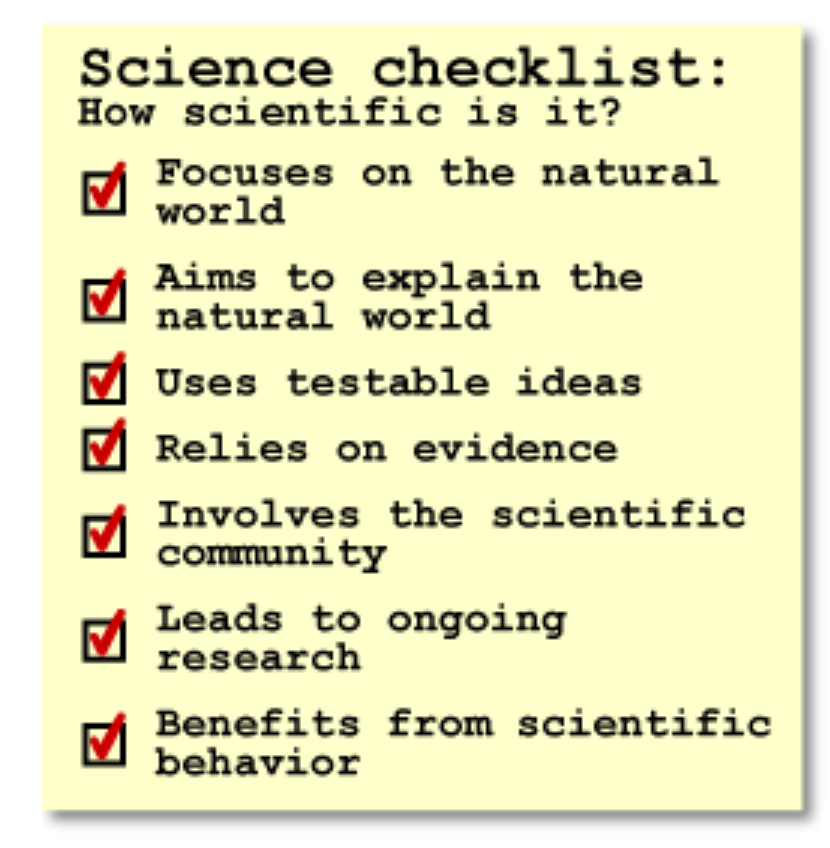yeahiknow3
I will never buy anything at Starbucks again. Used to spend like $100/month.
Hope it was worth it.
Look, here’s my point more concisely: can you name one scientist, just one, whose work isn’t subject to peer review? I can’t think of any. Given that science is ostensibly just the activity that scientists engage in, and all of them do peer review, that’s probably important, right?
When I look around my University I see people doing something, let’s call it “science.” I’d like to define this activity to distinguish it from other, similar activities. The fact that my efforts encounter a Demarcation Problem means the definition is more convoluted than simply “empirical investigation” or “fact finding”. If science could be captured with such broad strokes, there wouldn’t be a demarcation problem!
Elon Musk seems to “think” (and I use this word loosely) that science is when people do experiments or try to figure out the truth, apparently without reproducibility or peer review. But if that were the case, there would be no debate, no demarcation problem, no counter examples.
What we need to do is describe what scientists do that non-scientists don’t do with sufficient rigor to distinguish the two groups. As I said, peer review seems to be an indispensable feature of science. Do you have your own definition or suggestions?
P.S. just for future discussions, please don’t use Wikipedia for philosophy or mathematics. It’s a good resource of dates and names but that’s about it. For philosophy you can use textbooks or the Stanford Encyclopedia.
I’m not sure what we are arguing about here. The concept of “science” is fairly new and most people we would think of as “scientists” throughout history, such as Newton, actually considered themselves natural philosophers, hence the P in PhD. The modern concept of science arose as a kind of description of something humans do together. “Science” doesn’t mean figuring out the truth. That wouldn’t make any sense, because philosophy, logic, mathematics, etc, are all concerned with figuring out the truth as well. Science is an institution, a social endeavor (except when it isn’t — need counter examples). The Royal Academy of Sciences was created for that reason, funny enough — because Francis Bacon had pointed out that “science requires an intellectual community” (let’s be honest, humans are fairly dumb on their own — standing on the shoulders of giants and all that).
Anyway, in the mid 1950s there was a now famous work by Thomas Kuhn called The Structure of Scientific Revolutions which added an extra layer to the debate when he pointed out aspects of “science” that seem to be… not about finding the truth at all. But I’m guessing you already know that. Human beings are driven by many motivations, after all, and finding the truth is rarely one of them.
Anyway, the demarcation problem, yes: it’s very difficult to come up with a definition that perfectly picks out legitimate science without also applying to pseudo nonsense (see Pigliucci‘s Nonsense on Stilts). That said, we know what is and isn’t science. We are just having trouble coming up with a perfect definition that works every time.
Incidentally, having trouble defining science is literally my position. Science is something we do that isn’t as tidy and uncomplicated as “figuring out the truth.” It clearly involves some sort of methodology and it clearly involves people checking each other’s work and so on and so forth, and it’s different from math and different from astrology. You tell me how you want to define it, but it sure as shit isn’t “doing stuff in one’s garage alone without writing it down or reproducing the results,“ which is what Elon Musk seems to think.
Whereas you don’t think mental illness exists. I guess we all have our burdens to bear.
I did follow your link to UC Berkeley (the first one I clicked), and wouldn’t you know it, as I expected, they claim the following:

Huh, look at that. Apparently involving “the scientific community” is part of science.
Again, this is from your link, which you didn’t read, I assume because your patron saint, Dunning-Kruger, frowns on reading.
I think that presupposes an idealised [sic] state of human development that can be deducted from.
If you don’t think that mental illness exists, then there’s no point having this conversation.
Plus, some people really do think embryos are people!
Yes, and some are flat-earthers (truly) and Trump supporters, and some compulsively eat dirt. That’s kind of the point. Insanity is strange and we want to understand it better.